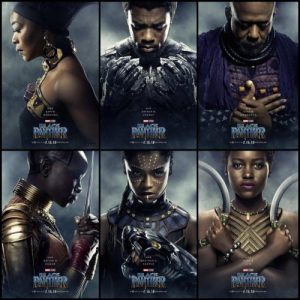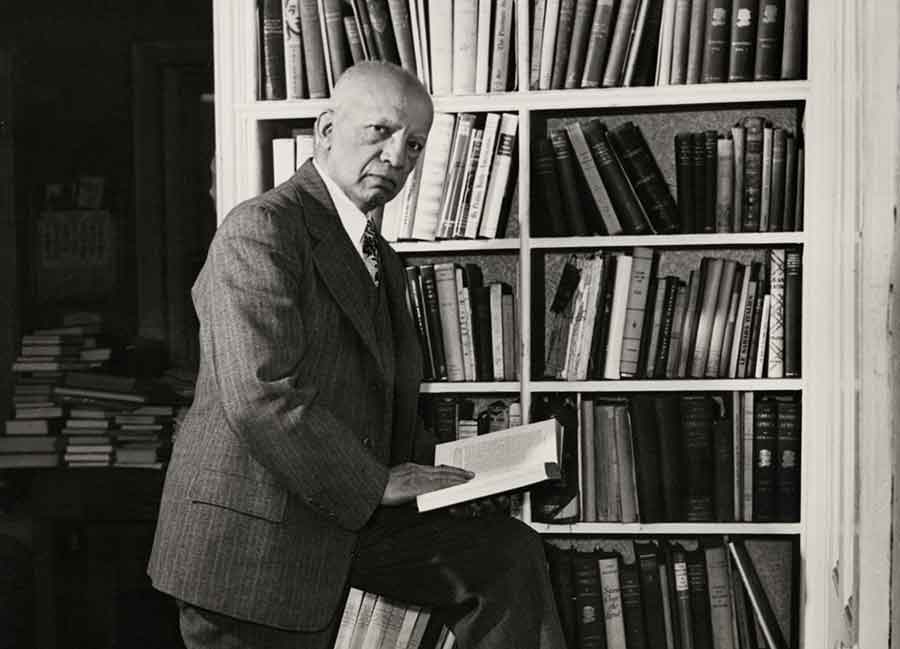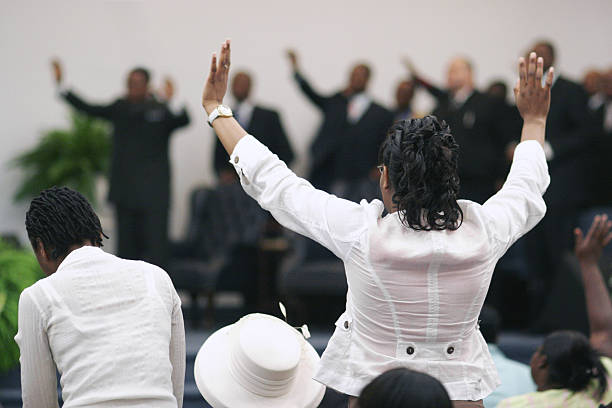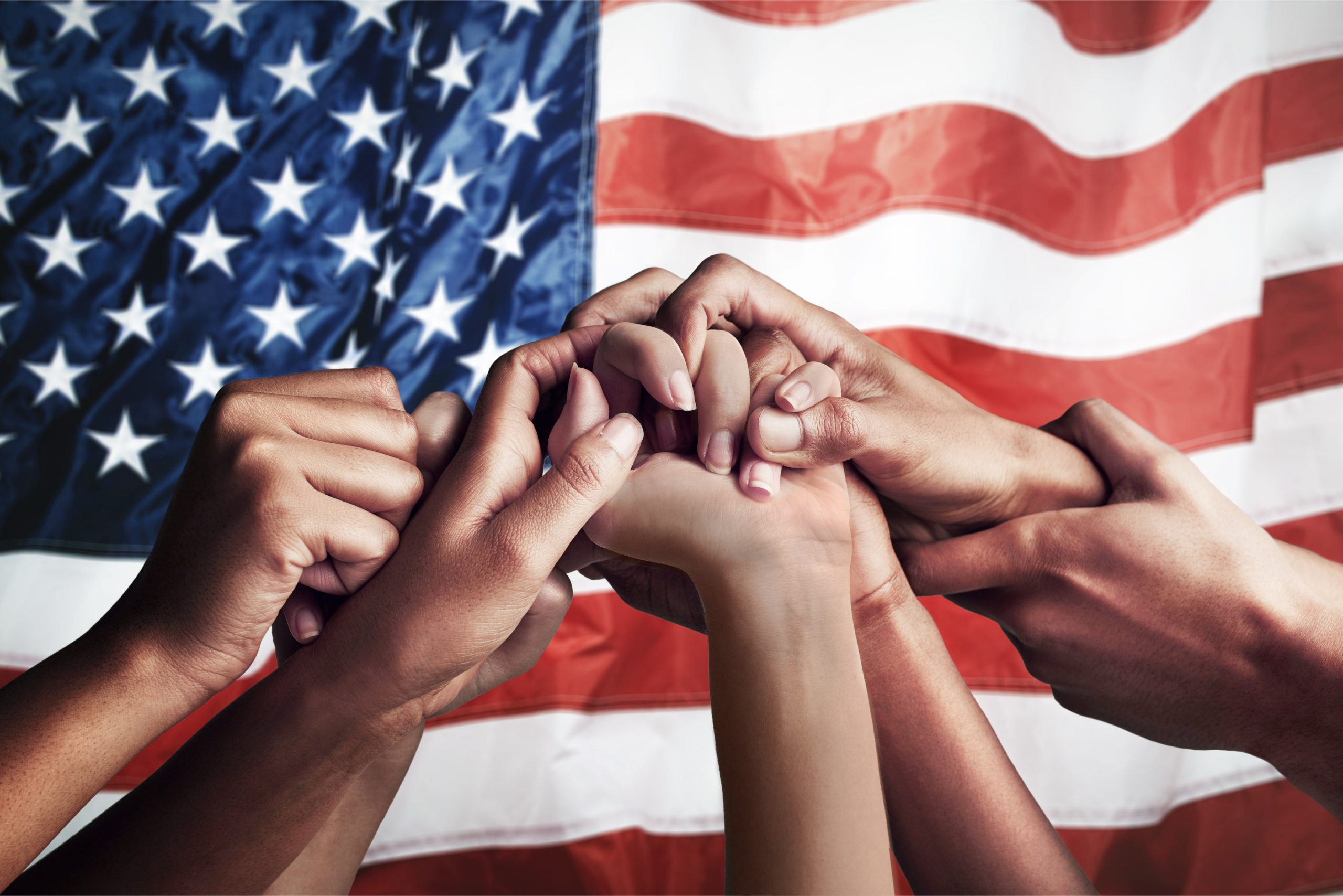(ThyBlackMan.com) On Saturday afternoon on March 10 the Molefi Kete Asante Institute and Afrocentricity International held a discussion on the Black Panther movie at their headquarters 5535 Germantown Avenue. The multi-generation audience consisted of students, intellectuals, retirees and working folks.
The program included watching trailers of the film, listening to written critiques of the film, how propaganda is used and an open discussion regarding the positive and negative aspects of the superhero movie which has grossed over one billion dollars world wide in just four weeks.
Dr. Molefi Kete Asante the founder of the Afrocentricty movement, whose institute owns and operates the building where the program was held, began the program by reading critiques of the film by Maulana Karenga and himself. Nabeelah Bey also distributed her critique of the film. Dr Ama Mazamu began the open discussion about the film.
Dr. Mazamu began the dialogue by asking the audience to share what they liked about the film and what they thought were its most positive aspects. Comments ranged from how the film provided awesome visuals and optics about a fictional African nation in a manner never seen before in Hollywood productions. Several attendees mentioned the impact the film was having on pop culture, how it is generating interest in things African such as culture, history, fashions, natural hair styles and providing a catalyst for envisioning Africans beyond the stultifying Hollywooddepictions of us by our oppressors. The portrayal of the women in the film, the talented actresses, richly hued strong females who did not acquiesce to Hollywood stereotypical behavior was also mentioned by several members of the audience. A few mentioned the film was spurring forums and discussions like this one that are fostering media literacy and analysis. Several expressed their pleasure the film is so successful.
When Dr. Mazamu asked about the negative aspects of the film, there were numerous opinions and observations shared and expressed by the attendees. One criticism was the film was not a true depiction of African governance; some disagreed with the film’s portrayal of leadership succession. They said the film was not consistent with Africa’s history. Several people felt the T’Challa character was weak. Several mentioned how despite her brilliance the Shuri character was disrespectful to her brother in one scene.
The most passionate conversation centered around the films messages, how it depicted: nationalism, self-determination, the role of Africans in the global liberation struggle particularly which point of view was more correct: Prince N’Jobu’s of King T’Chake. Prince N’Jobu was one of many spies Wakanda sent out to monitor what is going on around the world who was living in Oakland California (the home of the real life Black Panther Party) who witnessed the suffering of Black people around the world and wants to intervene using Wakandan technology, or King T’Chaka who wants to keep Wakanda inaccessible and uninvolved. During a fight King T’Chaka kills his brother N’Jobu who has a son Erik living in Oakland. T’Chaka returns to Wakanda but doesn’t bring N’Jobu’s body to Wakanda denying him a funeral and leaving his son abandoned. The unresolved options are presented to a second generation. Erik the son of N’Jobu has the same view as his father while T’Challa favors the policy of T’Chaka.
All the men are complex but the attendees expressed concerns regarding how N’Jobu and Erik’s interventionist/liberation views were presented in the film. It was noted both men were killed by family members: N’Jobu by his brother T’Chaka and Erik by his cousin T’Challa. Some saw this as not just anti-liberation, anti-nationalist propaganda but also a metaphor for the high levels of fratricide we are experiencing in our communities in this country.
Another hot button issue was the CIA agent Everett Ross character, one of only two whites in the film. It was pointed out to be successful Marvel needed the two white characters to attract white movie goers and they especially needed one of them to be a “good guy”. Almost everyone took exception to the fact the “good guy” was a CIA agent given the havoc the US CIA has wrecked on the continent of Africa. Someone asked how was it possible the CIA agent could fly advanced Wakandan airships?
It was a lively, respectful and extremely informative discussion. We realized Marvel Studio and Disney are not in the business of glorifying Africans, or telling our story. Their goal is to make money and continue building their cinematic universe with the help of a block buster film like Black Panther.
The final take away was African people must make and market our own films and tell our stories by tapping into the deep and rich reservoir of African history and culture for real models and lessons we can use to empower and elevate our people.
Written by Junious Ricardo Stanton
Official website; http://fromtheramparts.blogspot.com

















Black Panther Was A White Man’s Perspective Trevo Craw
Recently I went to see Black Panther and paid close attention to every minute. I applaud the African and African American actors. The movie was action packed and humorous at times. Word like nobility, honor, passion, action, family, discipline, order and allegiance come to mind. But there are a few things many people are missing – and those few things are disturbing.
Here is problem number 1. Even in the midst of an advanced African civilization, sure enough a Caucasian man plays the role of a savior. He is a CIA agent from the outside who shoots down all the ships leaving Wakanda to spread advanced weapons around the world to African nations and oppressed African Americans. So the “white” man single handedly stops all the ships. The agent flies one of their ships he has never even sat in before. Yet he is made to be so competent that he can shot down Wakanda ships flown by Wakanda pilots whose people have had the technology for centuries. That is a problem and makes him seem superior to Wakanda pilots.
Here is problem number 2. Then there is feminism that has crept into the movie. The female actresses are strong, honorable, capable and highly intelligent but that is not the problem. The problem here is that female body guards for the King, a female army and a female general just are not realistic in real African warrior nations. Maybe that works in Wonder Woman but that is clearly not the culture of African nations. As a matter of fact and accuracy, African women are very valuable to families, Kings and kingdoms. But not to the extent that they have to repeatedly protect, guard and save African male warriors. Unrealistic.
Here is problem number 3. Why was it necessary for the writer to have Africans fighting and killing other Africans? Yes that happens throughout Africa in real life such as in Apartheid, the Sudan and ethnic cleansing. But we all already know that. And a movie does not need to tell or show us that when it could be used to show us so much more that is positive.
Finally, my fourth concern. Ironically but not surprising, the successful challenger to the throne is more of an African American thug happy to work with Caucasian terrorists, kill his own girlfriend and live without honor. That is sending the message that the “negro” has lost his identity and is more dangerous and without honor than Africans who know who they are. That says a lot about American black people. Not good. Why not connect Wakanda to “black Americans” with honor instead of treachery?
Why have Wakanda at civil war instead of fighting the world? Because fighting the world would show just how superior Wakanda was and Africa is. That would further build the identity, confidence and stature of young African Americans and the powers that be don’t want that.
In the movie African tribes, after fighting for centuries, have come to use vibranium from a meteor for all of their weapons and technology. The plot is interesting and the actors are good but the Caucasian villain and the Caucasian CIA agent are not even necessary. They do not contribute much to the movie at all. I am not being racist but I do find it ironic how they are pushed to the front. Especially when African Americans in Marvel movies are often pushed further to the back. Interesting twist of irony.
Some of you may say I am reaching or going too deep. But to you I say messages and meanings are often buried deep and concealed from those of us who simply see entertainment. There were Caucasian people who helped to start the NAACP and to found key HBCUs like Spelman, Morehouse and Clark colleges. Why does it take a “white” man to create, launch and develop a super hero of color and take him to the big screen? Again they will make a ton of money off us, just like in basketball. Why can’t we make the money by us, for us? We are still cashing the checks instead of writing them.
In summary, great African and African American actors, interesting plot, spectacular panoramic scenery and a high tech look at how Africa is anything but an s…hole country President Donald Duck. My point is simply that we have to be careful about messages embedded in areas that we would never suspect. Why? Because those are the perfect places to implant covert messages that could further hurt our people. do I read too much into this? Nope. Maybe you just don’t go deep enough.